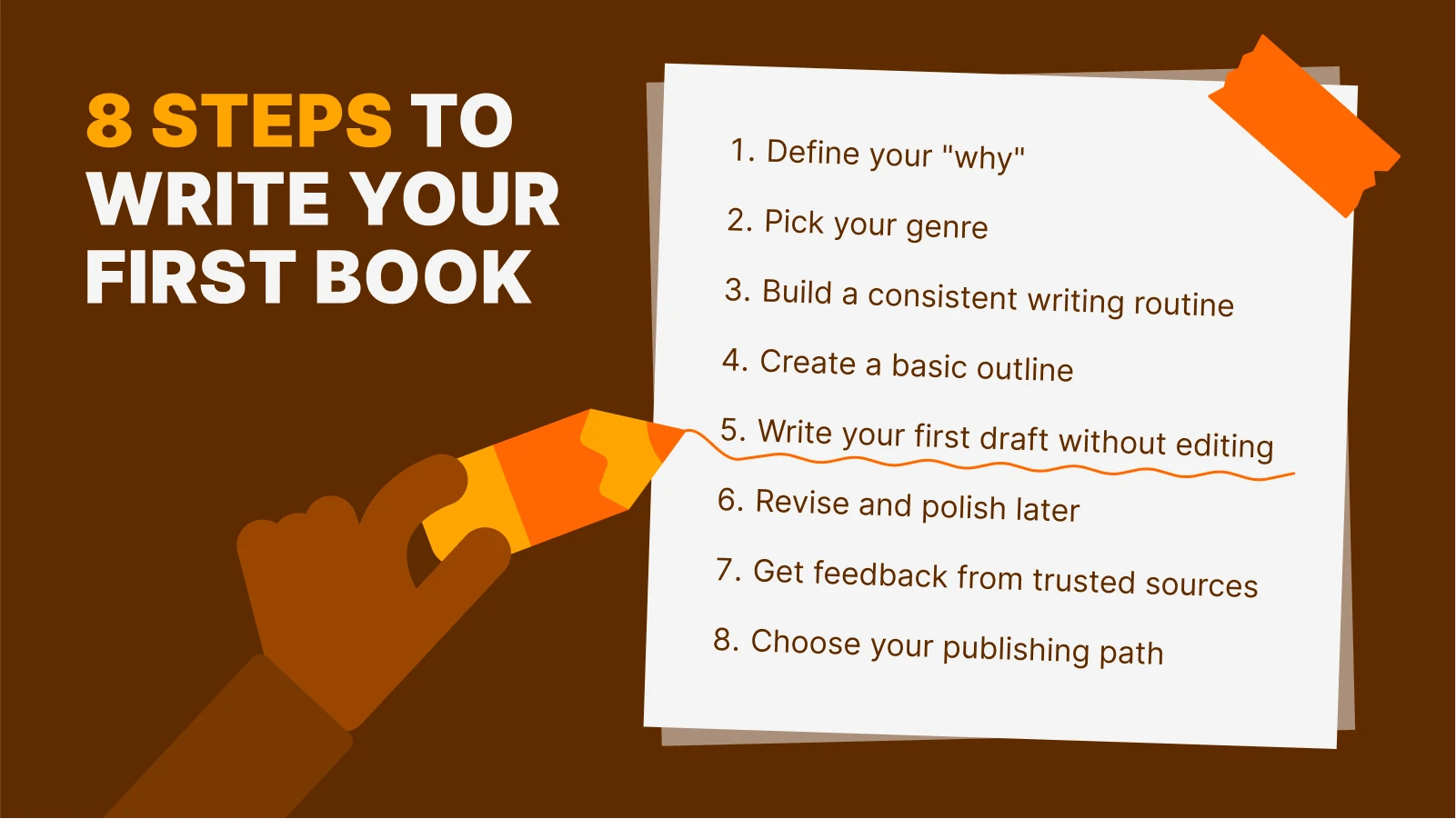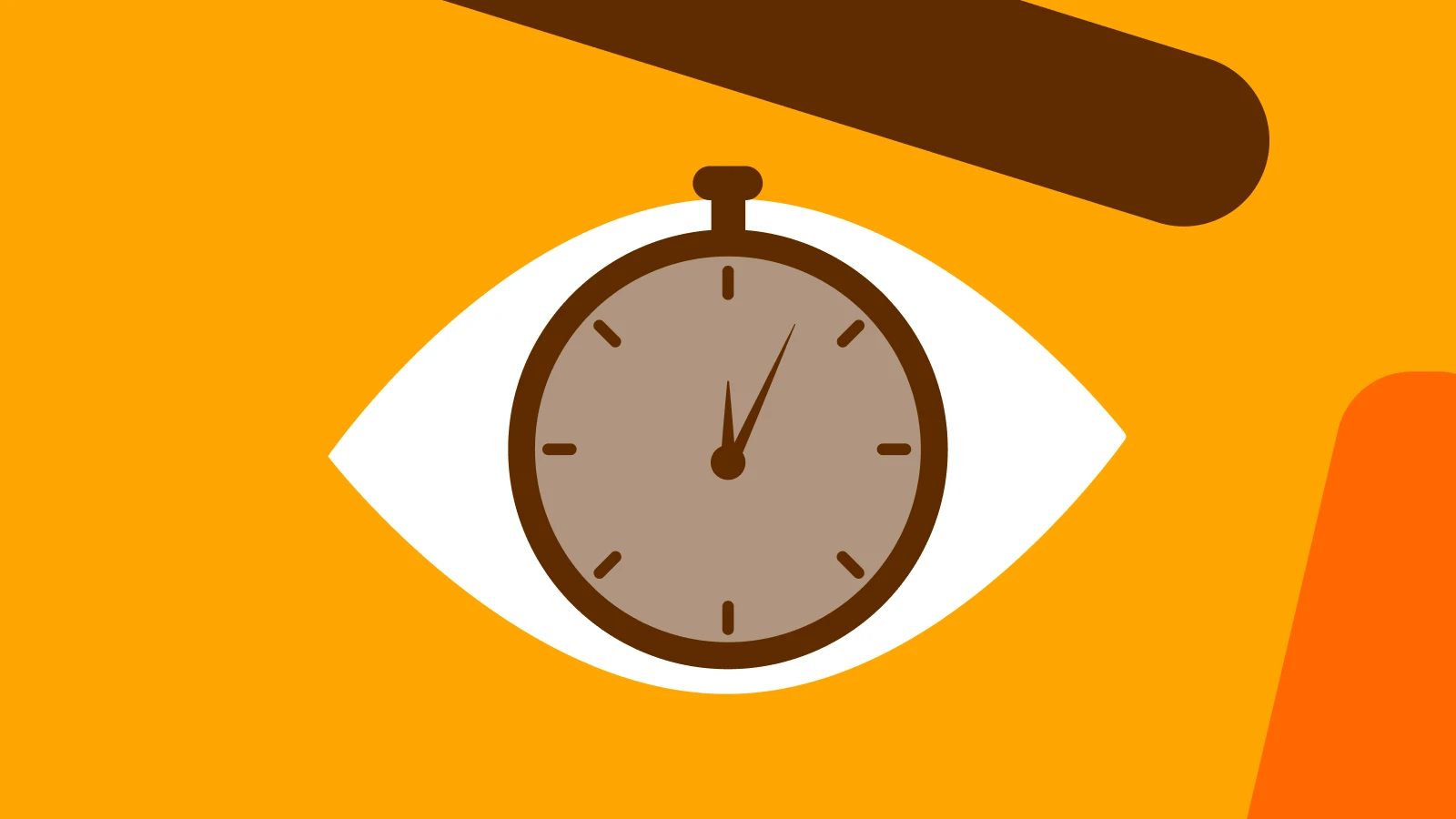If you've ever dreamed of writing your own book but thought, "What if I fail?" or "I don't know how to write a book with no experience," you're not alone. As someone who once believed I couldn't write an entire book due to my neurodivergence, lack of experience, and uncertainty, I'm now a two-time bestselling author who's telling you, "Yes, you can write a book, even if you've never done this before!"
A 2021 Reedsy survey found that over 60% of aspiring authors get rejections from publishers. Because of this, many people become paralyzed by fear that, without prior experience, formal training, or perfect grammar, they can't succeed. And so, that dream of becoming an author dies before they even start.
But here's the truth: writing a book is possible, and it's worth it.
If I can do it, so can you — and I'm going to walk you through exactly how to write a book with absolutely no experience. Together, we will explore what it takes to get started. I'll walk you through a step-by-step writing process, address common challenges (hello, self-doubt!), and share the tools and resources that helped me write my first book.
Quick tips to write a book with no experience:
Set a writing routine: Dedicate consistent time daily or weekly to build a habit and stay on track.
Outline your ideas: Create a simple outline to guide your structure and avoid feeling overwhelmed.
Write without editing: Focus on getting words down; revisions can come later to improve clarity.
Use learning tools: Leverage apps like Headway for quick learning, creativity, and productivity hacks.
Seek feedback: Share your work with others to gain constructive input and grow as a writer.
Keep reading for more practical tips and hands-on advice on book writing!
Is writing a book from scratch really possible?
Absolutely! Some of the world's most beloved, bestselling authors started with no formal training. Some notable literary figures who were largely self-taught and had great literary success include Mark Twain, Andy Weir, and Harper Lee. Writing is not an innate talent — it's a skill that can be practiced, refined, and strengthened over time.
When I started writing my first book, 'Mindful in Minutes: Meditation for the Modern Family,' I was terrified. I wasn't a writer — I was a meditation teacher with a podcast and a passion for helping others. I had both ADHD and dyslexia, and had never written anything longer than an email newsletter or social media caption.
But I knew I had a story idea and something valuable to say. So I took it one word, one day, one paragraph at a time. Piece by piece, I began to put together what would become my first book.
And then I did it again, with my second book, 'You Are Not Your Thoughts.' I still had fears. I still doubted myself. Could lightning strike twice? But this time, I knew I could write a book. Both books are now available globally, in national bookstores, and on Amazon. If I can go from zero writing experience to a twice-published author, so can you.
Let's look a little deeper at how you can do this.

Eight simple steps to writing your first book
Even without experience, writing a book is possible. Follow these steps to start your journey as a first-time author.
1. Define your "why"
Why do you want to write a book? To share a message, help others, leave a legacy, or fulfill a dream? This clarity is your roadmap and will keep you grounded when motivation wanes. Write your "why" on a post and keep it somewhere you will see it often.
2. Pick your genre
Are you writing fiction, a memoir, a nonfiction book, or a short story collection? Choosing your genre early helps define your target audience, writing style, and story structure. This step is foundational for any new writer.
3. Build a consistent writing routine
Writing a book doesn't happen overnight. Set aside consistent time each day or week — whether it's 20 minutes before bed or one hour every Sunday morning. This becomes your writing schedule and is essential for beginners. Think of it like a little writing date with your inner author.
4. Create a basic outline
Don't skip this step! Outlining your entire book's main points, first chapter, chapters, or plot provides structure and prevents overwhelm. It also helps you track word count and maintain a logical flow throughout your writing journey. I like to start with brainstorming sessions where I write everything I want to include first, then start to put it in order second.
5. Write your first draft without editing
Turn off your inner critic. The first draft is supposed to be messy. Just get the words down — you can polish them later. This is your creative writing zone and often the most freeing part of the writing process. Let the words flow and just write. Need help with the creative process? I love the book 'The Artist's Way.' It helps artists strengthen their inner core and find inspiration.
6. Revise and polish later
Once your draft is complete, take a break before proofreading and revisions. Then, come back with fresh eyes and refine your manuscript. You may want to hire a professional editor at this stage to prepare your manuscript for the publishing process. If you're working with a traditional publisher, they should provide you with an editor.
7. Get feedback from trusted sources
Share your manuscript with trusted friends, a writing group, or a coach. Constructive feedback improves your writing skills and helps you see blind spots. Many aspiring authors find that feedback is what transforms a rough draft into a polished book. But as you seek feedback, remember that if you have a gut feeling about which direction your book should go, follow your instincts.
8. Choose your publishing path
Decide if you want to self-publish (faster, more control) or go the traditional publishing route (more gatekeepers, wider distribution). Learn about the publishing process so you can choose the best path for your writing goals and timeline. Both options have pros and cons, so go with the one that feels like the best fit for you.
Of course, you can follow this guide step by step, but if fears are still holding you back, then you'll never write that book. Fear is the thief of creativity. So let's look at common challenges and fear a little closer and see how we can overcome them.
Common writing challenges and how to overcome them
Writing a book can feel overwhelming, especially when you face common obstacles like writer's block, self-doubt, or lack of time. These obstacles are part of the creative process, but the good news is, you can overcome them.
Writer's block
This one is so common, and it happens to everyone. To avoid it or get back on track, try changing your environment — go for a walk, sit in a café, or move your workspace. Sometimes, a shift in scenery can stimulate fresh ideas.
Also, try moving your body with light stretching or doing something completely unrelated to writing. I personally love doing a meditation for creativity before I begin. Freewriting or using writing prompts for 5 minutes can help loosen mental blocks. I also love the tips in 'Big Magic' by Elizabeth Gilbert — find the summary on Headway if you need a dose of creative inspiration.https://makeheadway.com/library/books/big-magic-summary/
Self-doubt
Self-doubt will show up often. When it does, come back to your "why." Keep a list of quotes or mantras from authors you admire. Remind yourself that every published author was once a beginner.
Reading books by others who have overcome similar struggles can be motivating. Keep a journal to track your progress, however small — it's proof that you are doing the work. Remember, you might be the next big thing in the literary world, but you'll never know unless you try.

Lack of time
Time feels like one of the biggest barriers, especially for new writers. Try voice-to-text apps while commuting or walking. Break your writing into short bursts — 10 minutes here and there adds up.
Use timers like the Pomodoro method (25 minutes writing, 5-minute break). You can also batch your writing on the weekends or early mornings. There's always time if you make it. Consider swapping time — less time scrolling social media, more time writing.
Even swapping 20 minutes a day can make a difference. If you're struggling with this, check out the summary of 'Atomic Habits' in Headway's online library for ideas on habit-stacking and behavior change.
Perfectionism
Focus on finishing your first draft, not polishing every sentence. Think of it as building a sandcastle before sculpting the details. Set a rule that you cannot go back to edit until you've completed a chapter.
Give yourself permission to write badly at first — progress matters more than polish. Perfectionism will hold you back, and there's no such thing as perfect. So why not release this limiting belief?
Comparison
Stay off social media or mute other authors while you're writing. Their highlight reels can spark insecurity. Remember that your writing journey is unique. Instead, fill your environment with support. Surround yourself with affirmations, create a "no-comparison" writing zone, and treat every writing session as a personal victory. Ask for feedback, but also remember that you don't need to listen to everyone's opinions.
These are the real hurdles that most beginners face. But with consistency and belief in your book, you can move through each one. Looking at what you're struggling with head-on and with intention will help you pinpoint where you're stuck, identify which limiting belief is holding you back, and help you move forward.

What tools help beginners write their first book?
To make your writing process smoother, more productive, and less overwhelming, try incorporating tools and resources into your routine. These tools are handy if you're figuring out how to start, as they help you structure your writing, stay organized, and eliminate distractions while building your creative writing skills.
1. Creative writing resources
Need inspiration or motivation? The Headway App offers concise summaries of some of the most powerful books on writing and creativity. Check out 'Bird by Bird' by Anne Lamott and 'On Writing' by Stephen King — both are packed with writing advice for beginners and aspiring authors. And if you're struggling with the impostor, get key insights from 'The War of Art' by Steven Pressfield and start your journey toward self-improvement.
2. Learning tools
The Headway App also has special reading lists, helps you set writing goals, and gives you checklists to build good habits. It's a helpful tool that makes your writing journey easier and more enjoyable, with quick tips and deeper advice whenever needed.
3. Writing software
Choose a writing tool that feels simple and comfortable for you. Many people like Scrivener because it lets you break your book into smaller sections, making it easier to organize. Google Docs is handy if you want to work from different places and share your work with friends or editors.
Notion is a flexible app where you can plan your ideas, track your progress, and outline your whole book. Microsoft Word is another classic option that's good for formatting and is accepted by most publishers.
4. Editing tools
Don't rely on your eyes alone, especially in your first draft or final revisions. Grammarly offers real-time spelling and grammar correction. Hemingway Editor helps streamline your writing style for clarity and readability. ProWritingAid goes even deeper with suggestions for tone, pacing, structure, and style consistency.
5. Distraction blockers
Focus can be elusive during lengthy writing sessions. Use Forest to gamify focus by planting virtual trees that grow as you write without distraction. Freedom App lets you block distracting websites and apps across all devices. Flow App creates Pomodoro-style sessions to help you stay in rhythm and avoid burnout.
These tools don't guarantee a bestselling book, but they do make the process easier and more efficient. Use them to support your growth and stay on track from the first chapter to the final manuscript.
My personal experience: From blank page to published
Writing my first novel — a nonfiction book, in my case — felt like climbing a mountain I didn't think I could scale. I questioned whether my brain, which works differently because of ADHD and dyslexia, could even manage the word count. I worried my writing style wasn't "professional" enough.
I thought, "I'm just a podcaster and meditation teacher. Can I really do this?" But day after day, I honored my writing routine. Some days I wrote a full chapter; other days just a sentence. I accepted and welcomed whatever came that day.
I still remember sending in my first draft of 'Meditation for the Modern Family,' my hands were shaking. I didn't feel ready, but I did it anyway. That first-time feeling, the mix of fear and pride, is something I now cherish. I had created an entire book out of an idea.
The revisions, the edits, the moments of writer's block — it was all part of the process. It started as a single spark in my mind, and now I have copies of this published book sitting on my desk.
The writing process taught me not just how to write a book, but how to trust myself. 'You Are Not Your Thoughts' was born from this confidence. Each book helped me grow — not only as a writer but as a person.
It was the result of hard work, patience, and a refusal to give up on my dream. And nothing compares to walking into a store and seeing your book published and on the shelf. It's the reward for all that hard work.
Find your writing voice with Headway
Writing a book without prior experience might feel daunting, but it's possible. Whether you're writing fiction, a science fiction novel, or a deeply personal nonfiction book, you already have what you need: a message worth telling.
Take the first step. Begin with your story idea. Set a writing schedule. Write your first chapter. Let go of perfectionism and just get your first draft done. You don't need to have all the answers. You just need the courage to begin.
And if you're looking for more guidance and learning on how to write a book with no experience, the Headway app can help! The app offers bite-sized summaries of books about writing, creativity, and confidence, making it perfect for new writers navigating their first book.
Frequently Asked Questions
What's the best way to start writing a book with no experience?
The easiest way to start writing a book without experience is to keep things simple and take the process step by step. Pick one clear idea and break it into small, easy parts. Try to write a little bit regularly, like 20 minutes a day or on weekends. Don't worry about making it perfect at first — just get your thoughts down and fix them later.
Do I need formal training to become an author?
No, you don't need special training to be an author. Many famous writers learned on their own. What really matters is that you keep learning, write often, and practice your skills. Reading books, joining writing groups, and asking for feedback can help you improve.
How long does it take to write a book with no experience?
Writing a book when you're new can take a few months or even a couple of years. It depends on how much time you have and how fast you write. Some people finish in about 6 to 12 months, while others take longer. Making a simple plan and setting small goals can help you stay motivated and finish your book.
How can I write a book if I have no ideas?
If you can't think of any ideas, try just writing whatever comes to your mind for a little while each day. You can use writing prompts, make a mind map, or think about your own life, news, or stories you've heard. Sometimes, ideas show up once you start writing, so don't wait for the perfect idea — just start and see where it goes.
Can I write a book if I don't read much?
Yes! You don't have to be a big reader to write a book. Write about things you know or care about. You can also learn by reading books about writing or listening to podcasts about how to write. What's most important is your own voice and experiences, so just begin writing and improve as you go.













